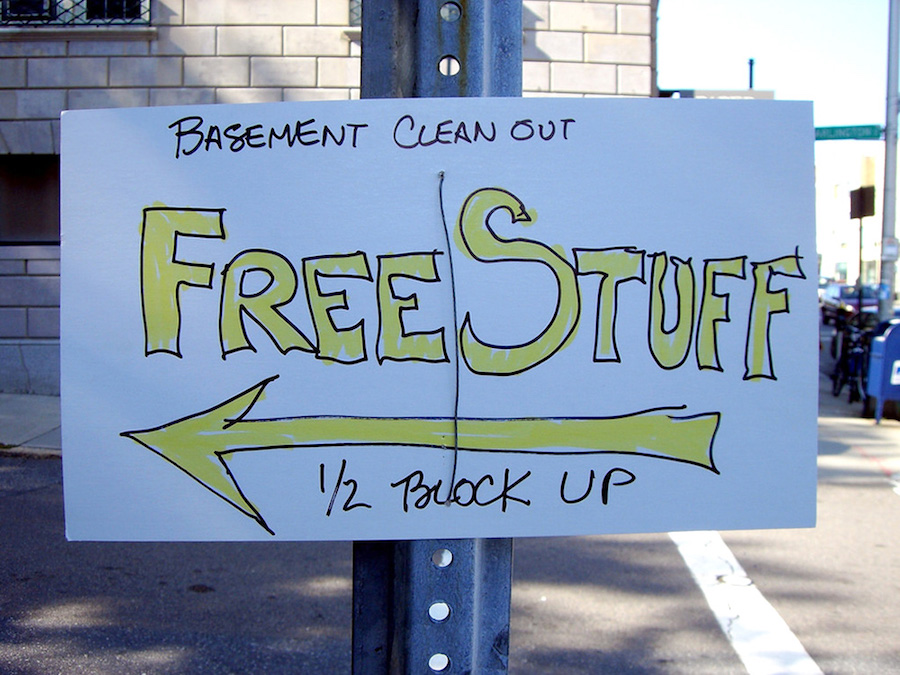Goodreads, the Amazon-owned social media site for bibliophiles, introduced a major overhaul to its giveaway system in early January. Previously, giveaways were free to host, making them a popular and cost-effective marketing tool for indie authors and publishers. Readers eager to win free books would browse the giveaways page and enter any contests that caught their eye, resulting in lots of exposure for books that might not otherwise get seen. The only cost to the host of the giveaway was that of the book (or books) and shipping.
With Goodreads’s new system, however, there’s no such thing as a free giveaway. Goodreads now offers two pricing tiers for authors and publishers who want to host giveaways: the Standard Package, which costs $119, and the Premium Package, which costs $599. Both packages allow hosts to give away up to one hundred print or Kindle versions of one book; if an author has multiple books, they will need to set up (and pay for) a separate giveaway for each one. With the Standard Package, anyone who enters a giveaway will find the book automatically added to their “Want-to-Read list,” and anyone who follows the author or the book will receive a notification about the giveaway. The Premium Package includes the same perks as the Standard Package, but Premium giveaways will show up on the “Featured” section of the Giveaways page, guaranteeing more visibility.
According to Goodreads, the new price points “reflect the marketing value” of the Giveaway service. However, while $600 might be a small fraction of the marketing budget for one of the Big Five, it could prove to be a barrier for indie authors and small presses. When the change was first announced, editor Andrew Liptak observed that Goodreads Giveaways were entirely democratic, listing books from indie publishers “alongside their heavyweight competition.” Now, “spending $200–$600 to give away one’s books just doesn’t make sense, especially when [smaller publishers and independent authors] can go onto their Twitter or Facebook pages and essentially run the same contest” for free.
One of the primary benefits to running a giveaway on Goodreads is the guaranteed exposure to new readers—a perk that authors who run giveaways on their own social media accounts are missing out on, and one that Goodreads has been careful to highlight in announcing the new system. However, some indie authors have pointed out that in the past, the exposure generated by hosting a giveaway on Goodreads has not directly affected the book’s sales.
My last @goodreads giveaway got me a couple hundred to-read adds – and *maybe* like 4 sales. I can’t afford to throw away $119 – $559 to give away copies of my book.
That’s only worth it if the giveaway results in dozens (or hundreds) of sales. Which it doesn’t.#NoThanks
— Laura Heffernan (@LH_Writes) November 29, 2017
New York Times bestselling author Chuck Wendig wrote in a lengthy Twitter thread that the move “feels like a gut-punch to authors.”
Again, to clarify, PAY MONEY to GIVE AWAY BOOKS.
I may be dense but that feels like a gut-punch to authors — who are not known to be the wealthiest creatures on Planet Earth.
— Chuck Wendig (@ChuckWendig) November 29, 2017
Of course, indie authors and publishers aren’t the only ones affected by the new rules: with fewer people creating giveaways, there are fewer books for Goodreads users to win. The same discoverability that benefits authors on Goodreads also benefits readers, who could find a book through a giveaway that they might not otherwise have heard about.
The new Goodreads Giveaways have only been live since the beginning of the year, so it remains to be seen how big the impact will be.

